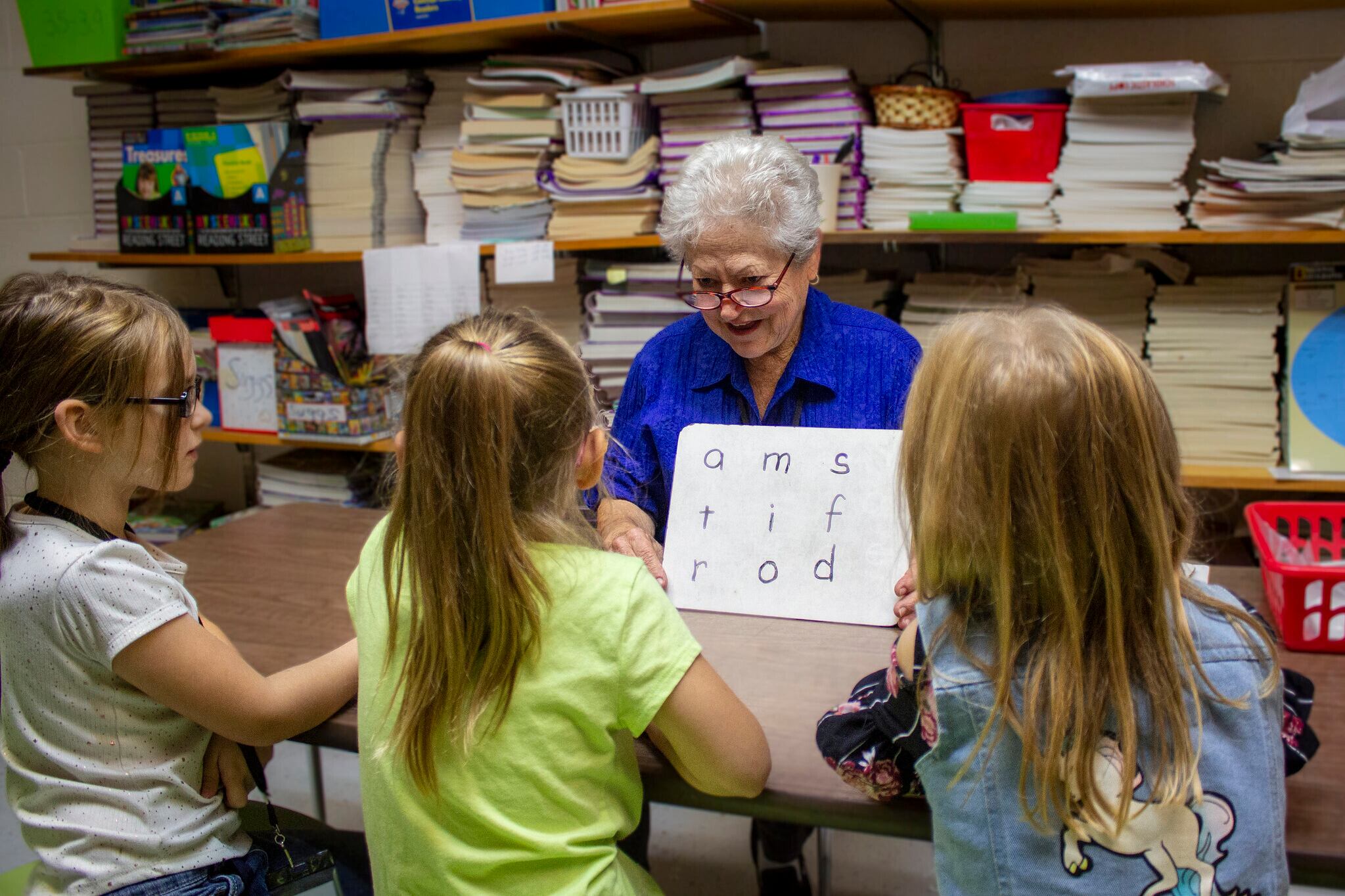More than half of Tennessee third graders at risk of being held back because of their reading test scores took another test this week to try to advance to fourth grade without summer school or tutoring.
The state began offering the retest on Monday. By Friday, 25,304 third graders had submitted a second reading assessment, said Brian Blackley, a spokesman for the state education department.
Preliminary scores from the initial test in the spring indicated that about 60% of Tennessee’s 74,000 third-graders could be at risk of being held back under a new state retention policy for third graders who struggle with reading. But that number is before factoring in exemptions under the law.
The testing do-over marks the end of a pivotal school year for third graders, who were kindergartners in 2020 when the pandemic shuttered school buildings and caused unprecedented learning disruptions.
A 2021 law enacted a tough new retention policy starting this school year for students who don’t test as proficient readers by the end of third grade. The law also created several learning intervention programs to help students catch up.
Since the 2022-23 retention policy is based on the results of a single test under the Tennessee Comprehensive Assessment Program, retesting using a similar “TCAP-style test” was part of the state’s plan for giving third graders another opportunity to improve their score.
The retesting window continues through June 5, but schools were expected to complete most of the do-overs this week so families can get their students’ results back sooner.
State officials have pledged that test vendor Pearson will return new scores within 48 hours after submission.
To get promoted to the fourth grade, third graders who who score as “approaching” reading proficiency must either attend a summer program with a 90% attendance rate, then show adequate growth on a test administered at the end of the program; or they must take advantage of state-funded tutoring throughout the 2023-24 school year.
Third graders who score in the bottom category of readers known as “below” must participate in both intervention programs to get promoted to fourth grade.
Summer learning camps start as soon as next week at some schools, although the schedule varies by district. For instance, Nashville’s program starts on June 1, while Memphis-Shelby County Schools launches its summer learning academies on June 20.
This week’s retests, via the state’s online Schoolnet platform, started off bumpy in some districts due to technical issues but smoothed out after the first day, Blackley said.
There were “isolated tech issues” on Monday in some districts that were “fully resolved,” Blackley said. “Our testing vendor, Pearson, has been troubleshooting effectively to manage and will continue to do so throughout the entire window,” he said.
Blackley added that technical problems will not delay the return of scores.
Marta Aldrich is a senior correspondent and covers the statehouse for Chalkbeat Tennessee. Contact her at maldrich@chalkbeat.org.






